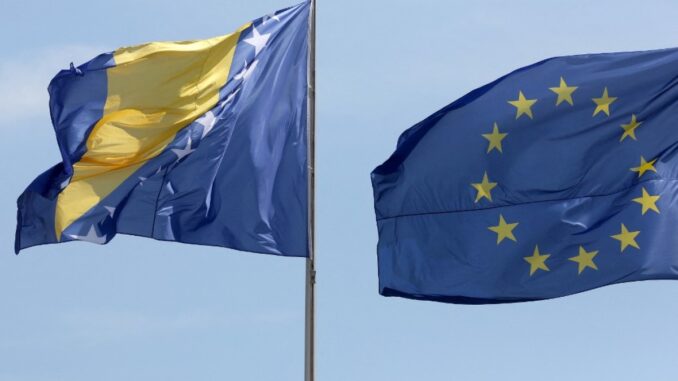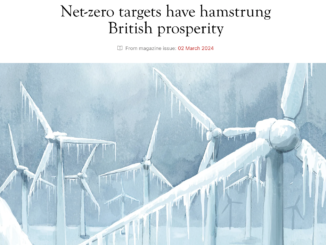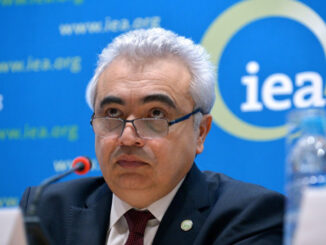
EU countries have agreed to grant Bosnia candidate status to join the union, putting the Balkan nation at the start of a long road to membership.
Russia’s war on Ukraine has breathed fresh life into the European Union’s willingness to consider letting in more of its eastern neighbours after years at a standstill.
The EU is concerned that other powers, such as Russia or China, might spread their influence into the Balkans if countries hopeful of joining the bloc are thwarted.
During a meeting in Brussels on Tuesday, European affairs ministers from the 27 member states gave the green light to Bosnia becoming a candidate after the European Commission, the bloc’s executive arm, in October recommended they launch the membership process.
The step is expected to be signed off formally by EU leaders at a summit in Brussels on Thursday.
Czech Minister for European Affairs Mikulas Bek, whose country holds the bloc’s rotating presidency, said member states were “sending a strong message of its commitment to EU enlargement”.
‘Chance for progress’
Bisera Turkovic, Bosnia’s foreign minister, said becoming an EU candidate will help the country access new funds and investments.
“Economically, investors from around the world will see in Bosnia … a clear positive side and chance for progress,” she said.
The move comes despite long-standing concerns over the political situation in Bosnia, a country of three million people burdened with ethnic divisions since its devastating war three decades ago.
It remains partitioned between a Serb entity and a Muslim-Croat federation connected by a weak central government.
It has an administrative system created by the 1995 Dayton Peace Agreement that succeeded in ending the conflict in the 1990s but largely failed in providing a framework for the country’s political development.
The EU’s executive branch, the European Commission, has laid out 14 priorities for reform that it insists Bosnia must make good on before it can move on to the next stage of opening formal accession negotiations.
Reforms needed
EU Enlargement Commissioner Oliver Varhelyi said in October that Bosnia needs reforms on issues that include the judiciary, battling corruption, and constitutional and electoral changes.
Bosnian politicians say it is high time the country be granted candidate status.
“It is time for the people of Bosnia and Herzegovina to receive a positive message from the European Union,” Denis Becirovic, the Bosnian member of the country’s tripartite presidency, said last week. “But of course, that will only be the beginning of the real work.”
A stand-off has seen Bosnia’s Serb entity, the Republika Srpska, block state institutions and cause “virtual paralysis” in the reform process, the EU has said.
There are also concerns over calls by Serb leaders for closer ties with Russia, and the entity’s nationalist President Milorad Dodik has vowed to stall the push towards the EU if it means more centralisation of power in Bosnia.
Others in the queue
Bosnia will join seven other nations with candidate status: Turkey, North Macedonia, Montenegro, Serbia, Albania, Moldova and Ukraine.
The process to join the European Union can take many years as candidates implement reforms that have to be rigorously evaluated by Brussels.
It can also grind to a halt, which is the case with Turkey’s bid.
Ukraine and Moldova were the most recent countries to be made candidates when they were given the status in June, four months after Russia unleashed its war on Kyiv.
Kosovo has announced its intention to apply for membership before the end of the year.



